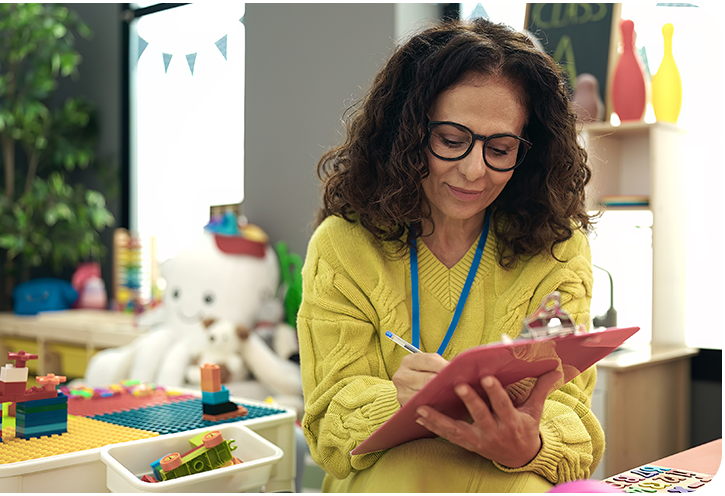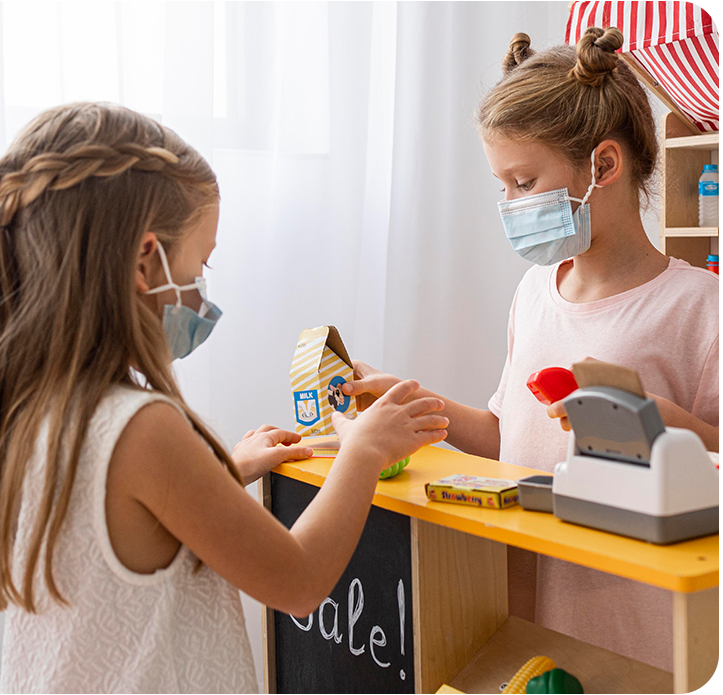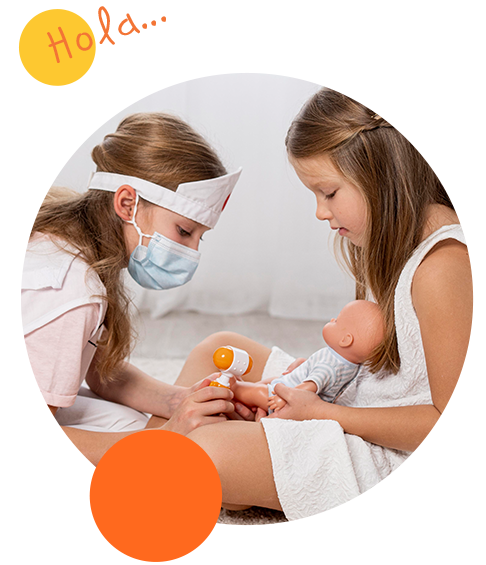
At La Escuelita Bilingual School, we always put your child first. Our top priority is ensuring your child’s safety and overall health at all times, which is why our staff is trained to respond to accidents or emergencies. In addition to our staff’s preparation for emergency situations, parents also have the option to grant permission to our staff to administer prescribed medications to their child. Our experienced staff is here to make your child’s educational experience as worry-free as possible.
In the Case of an Accident or Emergency
Minor injuries will be treated at our centers and the child will be allowed to remain in the classroom. All minor injuries will be recorded in the Accident Log found in each classroom. cParents will receive an accident report form with relevant information.
In the event of a life-threatening emergency, our staff will call 911. Parents will be notified immediately. They will be instructed as to the course of action taken. A staff member will remain with the child until a parent or authorized emergency contact can assume responsibility.
In the event of an illness or injury that is not life threatening, first aid will be given by attending staff. Parents will be notified and we will follow parent instructions as to the best course of action in order to provide medical care.
In case of a medical emergency, children will be transported either by private car, school van, or ambulance, to Children’s Orthopedic Hospital.

List of Hospitals Used in Case of Emergency
Children’s Orthopedic Hospital
4800 Sandpoint Way, Seattle, WA. 98105
206-526-2000
University of Washington Medical Center
1959 N.E. Pacific St. Seattle, WA. 98195
206-598-4000
Harborview Medical
Center
325 9th Ave. Seattle, WA. 98104
206-731-3000
Medication Policy at La Escuelita Bilingual School
La Escuelita Bilingual School will disburse prescription medication if the medication is in the original container with the physician’s instructions for administration on the label. Medication will be placed in a medication container in the school’s refrigerator. Waddlers’ and toddlers’ medication will be stored in their cubbies. Do not leave medication in lunch boxes, backpacks, or anywhere accessible to children. A medication form, which is available at the sign-in sheet area, must be completed indicating the time, dosage and duration of medication.
There are specific groups of non-prescription medications that can be administered at our centers. Parents must provide all medication inclusive of Tylenol. We will require a physician’s prescription indicating dosage for children under two years old.
- Antihistamines (Benadryl, Sudafed)
- Non-aspirin pain relievers and fever reducers (Tylenol, Datril, Liquiprin)
- Cough Medicine (Robitussin, Triaminic)
- Decongestants (Dimetapp, PediaCare, Robitussin)
- Diaper Ointments (A&D, Desitin)

All medicine must be in the original container labeled with the child’s name and clear instructions for use. Medication must indicate dosage by age. It is suggested that parents request pharmacists to prepare two containers when the prescription is filled so that there is one for home and one for within our centers. If this is not possible, parents can send the container with the pharmacist’s or manufacturer’s label to one of our centers and keep a supply in a self-labeled container at home.
Physician’s sample medications can only be given if accompanied by written directions from the health care provider for administration including the child’s first and last name, the date the prescription was filled, and the dose, duration and method of administration. For medications that are to be given for more than a one-month duration (e.g. for asthma, epilepsy and other long-term conditions), the parent authorization form will be signed monthly or whenever the prescription is changed. All policies apply to homeopathic medicines as well.
Parents must sign all medication authorization forms for both prescription and non-prescription medications to be administered by our staff. Parents must pick up any unused medication. If medication is not picked up, it will be properly disposed of.
Health Care Procedures for Excluding Children from the Classroom
Health Care Procedures for Excluding Children from the Classroom
Our staff will conduct a daily health check of children once they arrive at our centers. La Escuelita Bilingual School will report any communicable illness to the nurse and local health department. We will follow their recommendations in terms of excluding children from class and notifying all parents in order to protect children.
Children will not be permitted at our centers if they are experiencing any of the following symptoms:
- Fever of 101 F (auxiliary) or higher, 101 F mouth, 102 F rectal
- Vomiting on two or more occasions within the past 24 hour
- Three or more watery stools within a 24-hour period
- Draining rash
- Undiagnosed eye discharge or pink eye
- Fatigued, difficult to wake, confused or irritated
- Lice or nits
- Undiagnosed rash not associated with heat, diapering or allergic reactio
- Any communicable illness

Health Practices at La Escuelita Bilingual School
Any staff or parents within the classroom will wash their hands after diaper changes, toileting, coming in contact with body fluids and before preparing food. Hands of visitors will also need to be washed before entering a classroom. All children at our centers will be required to wash their hands upon arrival, after toileting, before meals and after their learning activities. Small toys will be disinfected on a daily basis. Larger equipment will be disinfected weekly. There are sufficient mat covers to change linens as needed. Soiled linen is sanitized and washed on a weekly basis at our centers.
Diaper changing guidelines are posted at each changing station. Cleanliness in the changing area is extremely important. Staff will wash their hands before and after each diaper change, and disinfect the diaper pail. Soiled clothing and plastic pants will be placed in a plastic bag and must be removed by parents daily. We request that only staff members change diapers for children while they are in our centers.

Toilet training at La Escuelita Bilingual School is dependent on the child’s physical and emotional development. Using the bathroom as “big kids” is also a socialization process. Children need to feel comfortable and safe undertaking this new behavior. Parents and staff will agree upon the appropriate time to begin toilet training. Parents need to provide training pants or disposable underwear to assist in the process.
Children need to be encouraged and praised for their success while toilet training. Setbacks need to be taken in stride. We need to focus on the achievements. Children cannot be forced or coerced into toilet training. Toilet training, however, is not successful if it is practiced only at home or within our centers. It needs a consistent and mutual effort.
